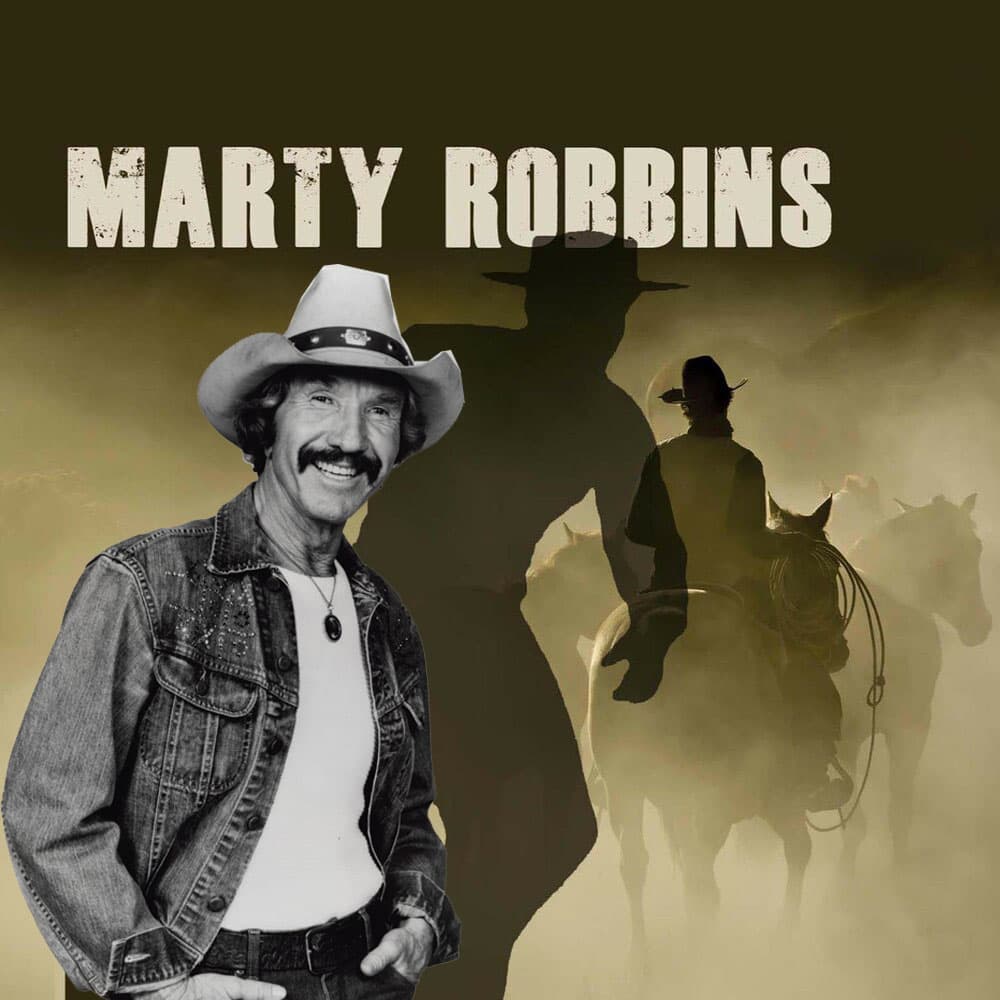
The Lonely Path: A Reflection on Humanity’s Search for Meaning
Ah, the golden age of country music, a time when stories were spun with a gentle twang and heartfelt honesty. For many of us who grew up with those melodies drifting from the radio, Marty Robbins was more than just a singer; he was a troubadour, a storyteller, a voice that often articulated the unspoken sentiments of the human heart. And among his vast and varied repertoire, there’s a particular song that resonates with a quiet, profound wisdom, a track that might not have been his flashiest chart-topper but certainly held its own in terms of lyrical depth: “Man Walks Among Us.”
Released in 1963 as a single, “Man Walks Among Us” found its place on the Billboard Hot Country Singles chart, peaking at a respectable No. 7. It was also featured on his album, “R.F.D. No. 1,” released the same year. While perhaps not achieving the ubiquitous fame of some of his other iconic hits like “El Paso” or “A White Sport Coat (and a Pink Carnation),” its enduring message has cemented its place in the hearts of those who appreciate the more contemplative side of country music. It’s a song that, like a well-worn photograph, invites us to pause and reflect on the very essence of our existence.
The story behind “Man Walks Among Us” is less about dramatic events and more about universal introspection. Written by Wayne P. Walker and Webb Pierce, it taps into a fundamental human experience – the feeling of being an outsider, even when surrounded by others. It’s a poignant exploration of the individual’s journey through life, grappling with feelings of isolation, searching for purpose, and observing the world with a sense of wonder and, at times, bewilderment. Robbins, with his characteristic smooth baritone, brought a gentle gravitas to the lyrics, delivering them not with despair, but with a quiet understanding, as if he too had walked that solitary path.
The meaning embedded within “Man Walks Among Us” is multifaceted and deeply resonant, particularly for those of us who have lived long enough to have seen many seasons come and go. At its core, it speaks to the paradox of human connection. We are social beings, yet we often feel profoundly alone in our thoughts, our struggles, and our dreams. The lyrics paint a picture of an observer, someone who sees the bustling world, the hurried lives, the superficial interactions, and wonders about the deeper currents beneath. “Man walks among us,” the song asserts, acknowledging our physical presence in a shared world, but then immediately delves into the emotional and spiritual distance that can exist between individuals. It explores the search for meaning in a seemingly indifferent universe, the quiet yearning for understanding and genuine connection that often goes unfulfilled. For many, it evokes those moments of quiet contemplation, perhaps sitting by a window on a rainy afternoon, or driving down a long, empty road, when the weight of existence settles in, and one ponders their place in the grand scheme of things.
Listening to “Man Walks Among Us” today is akin to revisiting a cherished memory. It transports us back to a simpler time, perhaps to an era when music was less about production and more about the raw power of a story well told. It reminds us of an age when country music wasn’t afraid to be reflective, to grapple with the big questions of life, death, and everything in between. Marty Robbins had a gift for inhabiting these narratives, for making them feel personal and universal all at once. His delivery in this particular song is understated yet immensely powerful, each word imbued with a gentle melancholy that speaks directly to the soul. It’s a reminder that even in the most crowded rooms, we can feel a profound sense of solitude, and that this feeling, though sometimes unsettling, is a shared human experience. It’s a song that doesn’t offer easy answers but rather invites us to embrace the journey, with all its inherent loneliness and wonder. And in that embrace, we might just find a deeper appreciation for the beauty and complexity of what it truly means when “man walks among us.”